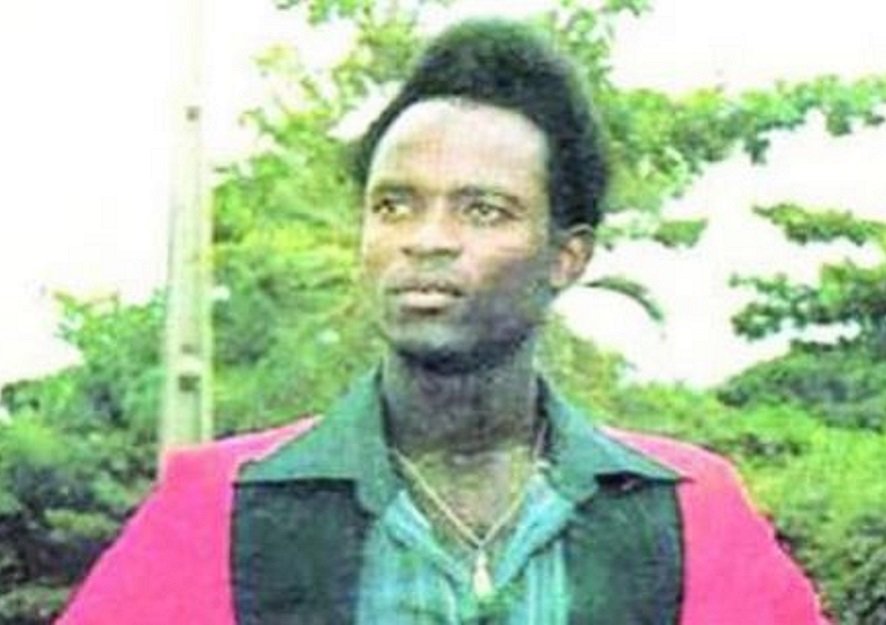“When I dey hungry, my mother go run up and down / she dey find me something wey I go chop oh! / Sweet Mother a-aah / Sweet Mother oh-e-oh!”
This is an excerpt from the all-time hit “Sweet Mother” from 1976, which is dedicated to all mothers and their love and care for their children. This magnificent composition was inspired by the love and sacrifices of Prince Nico Mbarga’s mother, who worked day and night to care for him and his siblings after their father died.
Before “Sweet Mother” was finally released in December 1976 by Rogers All-Stars, a Nigerian recording company based in Onitsha, the song was rejected by numerous Nigerian recording companies. Some producers even viewed it as a juvenile.
Today, the song, with its West African highlife beat, pidgin lyrics, and Congolese-style guitar, is one of Africa’s greatest and most popular songs, sung to celebrate motherhood at birthday parties, weddings, funerals, and even Mother’s Day church services. The song is also one of the best-selling singles in the history of recorded music.
Mbarga, the son of a Cameroonian father and a Nigerian mother, was born on April 8, 1950, in Abakaliki, the capital of Ebonyi State, Nigeria. In Ikom, Nigeria, he was raised listening to highlife music on his father’s radio.
His father, a woodcutter, ensured Mbarga’s education. Simultaneously, he instructed him on how to play the xylophone, having learned the instrument from his family as a child.
Later, Mbarga constructed his own xylophone out of dried plantain skins and scooped bar. Mbarga decided to pursue music shortly after his father died, leaving him, his mother, and his siblings behind.
During the 1967 Biafran War, he left Ikom for Mamfe, Cameroon, where he worked as a “bad boy” for a Congolese band, transporting instruments to hotels for concerts. According to Narratively.com, Mbarga fell in love with Congolese rumba and learned to play the conga, drums, bass, and the “finger-picking style” of Congolese electric guitar.
After the Biafran War, he and his wife Lucy returned to Nigeria in 1970 and settled in the commercial center of Onitsha.
Read Also:
“We cherished the location,” Lucy recalled. From that point on, God blessed him.
Mbarga formed Rocafil Jazz in Onitsha, and they signed a contract to perform every Sunday at the Plaza Hotel in Onitsha. There, he met other music stars, and by 1973, after being signed by EMI, he had recorded his first hit, “I No Go Marry My Papa.”
The song performed well in terms of sales. Mbarga produced additional songs while pursuing a law degree, but EMI soon cut ties with him after he failed to produce additional commercial hits.
Then, in 1976, Rogers All-Stars of Onitsha, Nigeria, released “Sweet Mother.” Mbarga and his band began touring Nigeria, and people demanded “Sweet Mother” everywhere they went.
“It was comparable to the national anthem,” band member Jean Duclair remarked. Mbarga and the band also toured throughout West Africa — Cameroon, Ghana, Togo, Cote D’Ivoire, Benin, Burkina Faso — and then Kenya, where large crowds screamed Mbarga’s name at concerts. They also performed at numerous London venues.
By 1983, however, Mbarga’s band had disbanded due to a misunderstanding regarding money and contracts. Although the band reformed, they were never the same as before. In the interim, Mbarga returned to Ikom, where he constructed and managed the Sweet Mother Hotel. Additionally, he performed there and married his second wife, Esame.
In Calabar, Nigeria, on June 23, 1997, a tragic motorcycle accident claimed the life of Mbarga, who had hoped to return to the music scene with his band. He left behind “Sweet Mother,” one of Africa’s greatest songs, which helped propel his band into Africa’s Music Hall of Fame.
Even after his passing, he continues to be revered in Nigeria and beyond. BBC listeners voted “Sweet Mother” as Africa’s favorite song in December 2004.
“It’s not just about the lyrics,” BBC’s Joseph Warungu said at the time about the song lyrics. “Something is captivating about the singing guitar. Once again, the guitar in this song drives you insane.”

